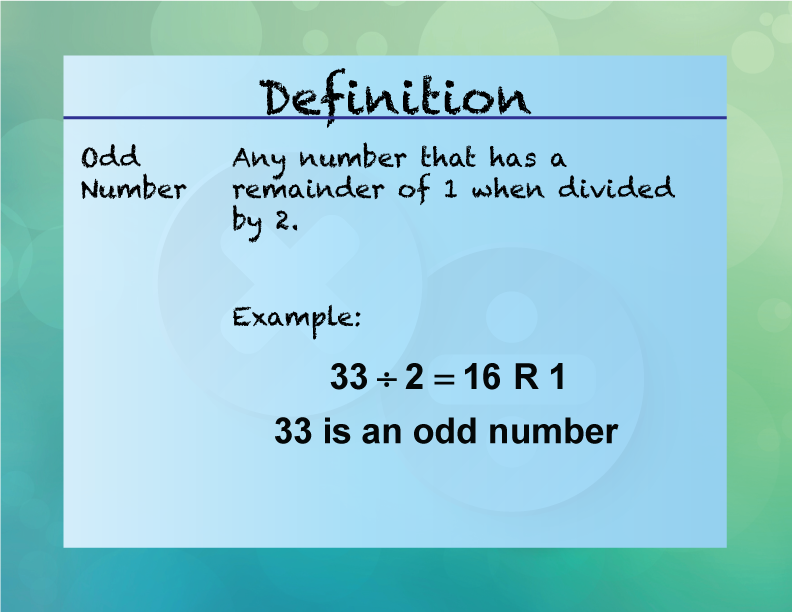
Display Title
Elementary Definition--Multiplication and Division Concepts--Odd Number
Display Title
Odd Number

Topic
Multiplication and Division
Definition
An odd number is a whole number that is not divisible by 2 with no remainder.
Description
Odd numbers are whole numbers that cannot be divided by 2 without leaving a remainder. Examples include 1, 3, 5, 7, and so on. Understanding odd numbers is fundamental for grasping number theory and arithmetic operations. They play a crucial role in various mathematical concepts, such as divisibility rules and algebraic equations. In real-world applications, odd numbers are used in scheduling, computer algorithms, and statistical analysis. Understanding odd numbers helps students grasp the concept of parity and develop their number sense, which is essential for higher-level mathematics.
Teacher script: "Odd numbers are like socks that don't have a pair. If you have 3 socks, one sock is left without a pair. That's an odd number."
For a complete collection of terms related to Multiplication and Division click on this link: Multiplication and Division Collection
| Common Core Standards | CCSS.MATH.CONTENT.4.OA.B.4, CCSS.MATH.CONTENT.3.OA.C.7, CCSS.MATH.CONTENT.3.OA.B.5 |
|---|---|
| Grade Range | 2 - 4 |
| Curriculum Nodes |
Arithmetic • Multiplication • Multiplication Expressions and Equations |
| Copyright Year | 2021 |
| Keywords | multiplication, division, equation |